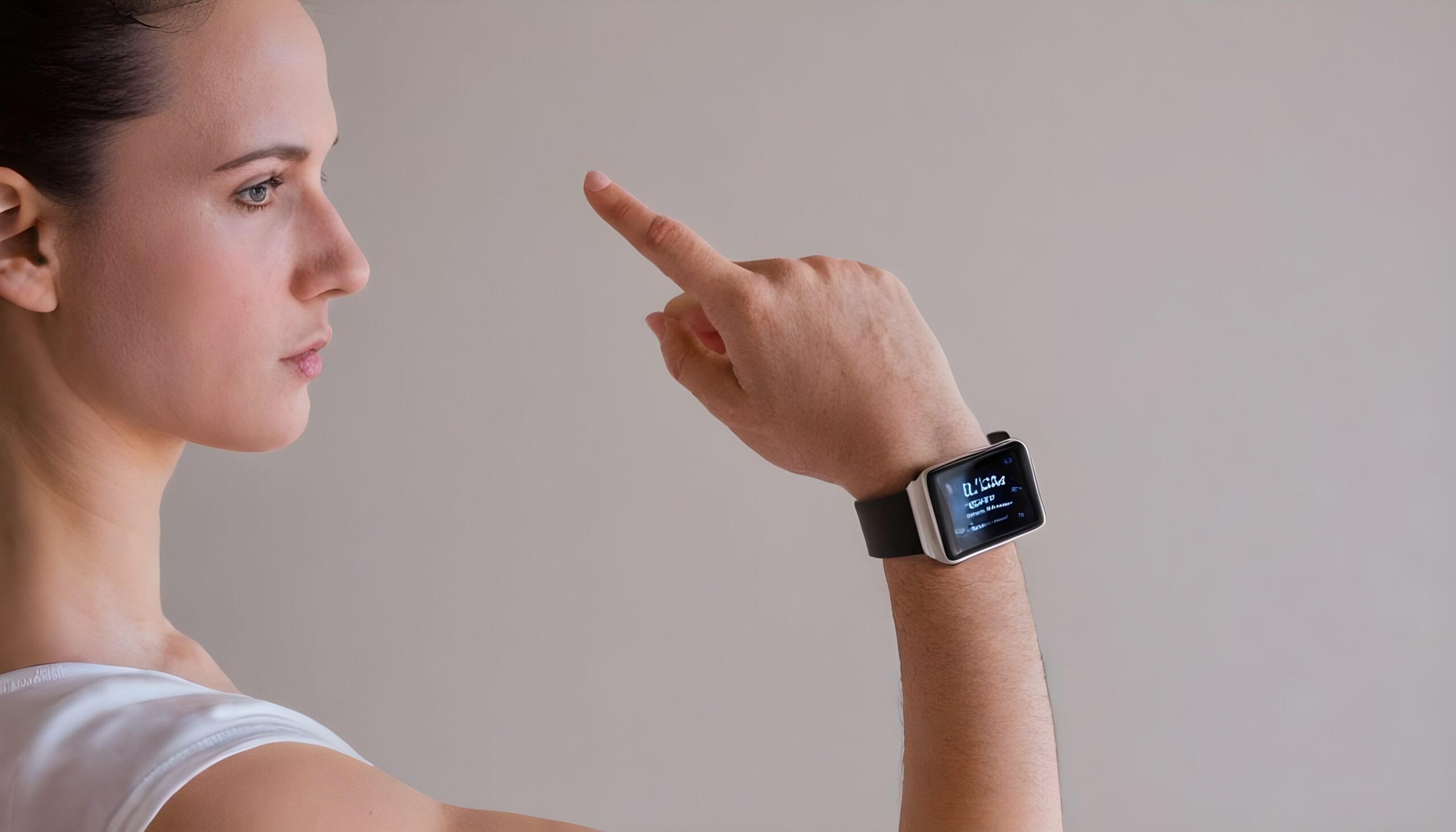The impact of wearables on mental health is becoming increasingly relevant as more research and evidence showcase their potential to revolutionize the way we understand and manage mental well-being. With the growing prevalence of mental health conditions worldwide, there is a pressing need for innovative solutions that can provide real-time monitoring, personalized interventions, and increased self-awareness.
In recent years, the intersection of technology and healthcare has paved the way for groundbreaking innovations. One such innovation is the emergence of wearables – devices that can be worn on the body to monitor various aspects of health and well-being. While wearables have gained significant popularity for tracking physical health metrics such as heart rate, sleep patterns, and exercise, their potential to revolutionize mental health care is increasingly gaining attention.
Understanding the Mental Health Landscape
Mental health is a complex and multifaceted aspect of human well-being. Disorders such as anxiety, depression, and stress-related conditions significantly impact individuals’ lives, often leading to reduced productivity, impaired relationships, and decreased quality of life. Traditional approaches to mental health care have primarily relied on subjective self-reporting and occasional clinical assessments, which may be limited in capturing the dynamics of mental well-being.
The advent of wearable technology has expanded the possibilities of monitoring and managing mental health conditions. With the ability to collect real-time physiological and behavioral data, wearables offer a unique opportunity to gain insights into individuals’ mental states and provide personalized interventions.
Biometric Data and Emotional Insights
Wearables equipped with biometric sensors can measure physiological signals such as heart rate variability, skin conductance, and even brain activity. These data points can provide objective indicators of stress levels, emotional arousal, and overall mental well-being. By continuously monitoring these metrics, wearables can detect patterns and triggers that contribute to mental health conditions, allowing individuals and clinicians to intervene proactively.
Moreover, wearables can analyze changes in biometric data and provide insights into emotional well-being. For example, sudden increases in heart rate or skin conductance levels may indicate heightened stress or anxiety. By alerting individuals to these changes, wearables can help users become more aware of their emotional states and take necessary steps to manage their mental health.
Sleep and Stress Management
Sleep disturbances and chronic stress are closely linked to mental health disorders. Wearables that track sleep patterns, such as duration, quality, and sleep stages, can help individuals understand their sleep patterns and make adjustments to optimize their rest.
Furthermore, wearables that incorporate stress management features, such as guided breathing exercises or biofeedback mechanisms, can support individuals in managing stress levels and promoting relaxation. These wearables can provide real-time feedback on breathing patterns, heart rate variability, or other physiological markers, enabling users to engage in effective stress-reduction techniques.
Activity and Exercise Tracking
Regular physical activity and exercise have been shown to have positive effects on mental health. Wearables that track activity levels, step counts, and exercise routines can encourage individuals to engage in regular physical activity as part of their mental health self-care regimen.
Additionally, wearables can provide instant feedback and motivational prompts to support individuals in achieving their exercise goals, enhancing their overall mental well-being. For example, wearables can gamify physical activity by setting daily step targets and rewarding users for reaching milestones. This gamification aspect can increase motivation and adherence to an exercise routine, leading to improved mental health outcomes.
Behavioral Patterns and Cognitive Factors
Wearables equipped with accelerometers and GPS sensors can capture behavioral patterns and contextual information. By analyzing this data, wearables can identify correlations between certain activities, locations, or social interactions and an individual’s mental well-being.
For instance, a wearable device can detect that an individual’s stress levels spike during specific work tasks or social situations. This information can help individuals identify potential triggers or environmental factors contributing to their mental health conditions, leading to more informed self-management strategies.
Furthermore, wearables can leverage cognitive assessment tools to monitor cognitive factors relevant to mental health. These tools can measure attention, memory, and executive functions, providing valuable insights into an individual’s cognitive well-being and potential cognitive deficits associated with mental health disorders.

Interventions and Support
Beyond monitoring, wearables can also deliver interventions and support directly to users. For example, wearable devices can provide real-time alerts or reminders for medication adherence, therapy sessions, or engaging in self-care activities.
Additionally, wearables can facilitate access to on-demand mental health resources, such as guided meditation, relaxation techniques, or cognitive behavioral therapy exercises, providing individuals with immediate support when needed. These features enable individuals to actively participate in their mental health management and maintain continuity of care outside traditional clinical settings.
The Importance of Data Privacy and Ethical Considerations
As wearables collect sensitive data related to mental health, it is crucial to prioritize data privacy and ethical considerations. Manufacturers, healthcare providers, and regulatory bodies must work collaboratively to ensure secure data storage, informed consent, and transparent data sharing practices.
Implementing robust security measures and complying with privacy regulations are essential to maintain individuals’ trust and protect their sensitive mental health information. Furthermore, clear guidelines and policies regarding data usage and sharing should be established to ensure responsible and ethical practices in the field of mental health wearables.
Challenges and Future Directions
While wearables hold immense potential in the field of mental health, certain challenges need to be addressed. These include the accuracy and reliability of data collected, user adherence and engagement, integration with existing healthcare systems, and the need for interdisciplinary collaboration between technology and mental health professionals.
Ensuring the accuracy and reliability of wearables’ data is crucial to provide users and healthcare providers with accurate insights. As wearables become more prevalent, it is essential to validate the effectiveness of these devices in mental health interventions through robust scientific research.
Moreover, improving user engagement and adherence to wearing and using wearables is important for long-term efficacy. Designing user-friendly interfaces, incorporating motivational elements, and personalizing interventions can enhance user acceptance and engagement.
Furthermore, integrating wearables seamlessly into existing healthcare systems and workflows is necessary to facilitate the adoption of these devices by healthcare providers. Collaboration between technology developers, mental health professionals, and healthcare organizations can bridge this gap and ensure the seamless integration of wearables into clinical practice.
The Role of Artificial Intelligence in Wearables
Artificial intelligence (AI) plays a pivotal role in unlocking the full potential of wearables on mental health. AI algorithms can analyze the vast amounts of data collected by wearables and provide meaningful insights in real-time. By leveraging machine learning and deep learning techniques, AI can identify patterns, detect anomalies, and make accurate predictions regarding an individual’s mental health state.
One area where AI has shown great promise is in the early detection of mental health disorders. By analyzing data from wearables, including physiological signals and behavioral patterns, AI algorithms can identify subtle changes that may indicate the onset or worsening of a mental health condition. This early detection enables timely intervention and treatment, potentially preventing the progression of the disorder and improving outcomes for individuals.
AI-powered wearables can also support individuals in managing their mental health on a daily basis. Through personalized recommendations and interventions, these devices can provide real-time feedback and guidance. For example, wearable devices can prompt individuals to take breaks, perform relaxation techniques, or engage in activities that promote positive mental well-being. By tailoring interventions to an individual’s specific needs, AI-powered wearables can empower individuals in their self-care journey.
Furthermore, AI algorithms can help healthcare professionals gain a deeper understanding of mental health conditions by analyzing large datasets collected from wearables. By identifying common trends and correlations, AI can provide valuable insights into the factors that contribute to mental health disorders. This knowledge can inform the development of more effective treatment strategies and support the advancement of evidence-based practices in mental health care.
The Integration of Wearables in Clinical Settings
Wearables have the potential to transform mental health care in clinical settings as well. By integrating wearables into existing healthcare systems, healthcare providers can access real-time data and gain a comprehensive view of an individual’s mental health status. This information can aid in making more accurate diagnoses, tracking treatment progress, and adjusting interventions accordingly.
In therapy sessions, wearables can provide objective data that supplements self-reporting. For instance, a therapist may use heart rate variability data from a wearable device to assess a patient’s physiological response during exposure therapy for anxiety disorders. This additional information can help therapists monitor progress and tailor treatment plans to individual needs.
Moreover, wearables can facilitate remote monitoring and telehealth services, particularly for individuals who have limited access to in-person mental health care. By leveraging wearables, healthcare providers can remotely monitor vital signs, sleep patterns, and activity levels, enabling them to intervene when necessary. This capability is particularly beneficial for individuals in rural areas or those who face mobility challenges.
However, it is important to recognize the limitations of wearables in clinical settings. While wearables provide valuable insights, they should not replace the expertise and guidance of mental health professionals. The data collected by wearables should be used as a complementary tool to inform clinical decision-making, rather than a sole determining factor.
Ethical Considerations and Future Implications
As with any technology that collects personal data, wearables in mental health raise important ethical considerations. It is crucial to ensure that individuals’ privacy is protected, and their data is securely stored and used with appropriate consent. Manufacturers should implement robust security measures to safeguard sensitive mental health information and comply with relevant privacy regulations.
It is also important to address the issue of data accuracy and reliability. While wearables have made great strides in measuring physiological and behavioral data, there can still be variations and errors in the data collected. Ongoing research and development are necessary to improve the accuracy and reliability of wearables in mental health applications.
Looking to the future, wearables and AI have the potential to transform not only the field of mental health but also the broader healthcare landscape. The integration of wearables with other emerging technologies, such as virtual reality or augmented reality, may provide new avenues for therapeutic interventions and immersive mental health experiences.
Additionally, the continuous advancements in AI algorithms and machine learning techniques will further enhance the capabilities of wearables. As AI becomes more sophisticated, wearables can provide increasingly personalized and context-aware interventions, improving their effectiveness in managing mental health conditions.
In conclusion, wearables have the potential to revolutionize mental health care by providing real-time monitoring, personalized interventions, and increased self-awareness. Artificial intelligence plays a critical role in harnessing the power of wearables by analyzing data, providing insights, and supporting clinical decision-making. While challenges exist in terms of privacy, data accuracy, and integration into clinical settings, ongoing research and development, along with ethical considerations, will pave the way for a future where wearables become essential tools in promoting mental well-being.
Conclusion: The Impact of Wearables on Mental Health
Wearables have the potential to transform mental health care by providing real-time monitoring, personalized interventions, and increased self-awareness. By leveraging the power of wearable technology, individuals can take an active role in their mental well-being, while healthcare providers can access valuable data to provide more targeted and effective treatments.
As the field continues to advance, it is crucial to prioritize user privacy, research validation, and collaboration to unlock the full potential of wearables in mental health care. With careful attention to data privacy and ethical considerations, wearables have the potential to revolutionize mental health care, making it more accessible, personalized, and effective for individuals around the world.
Thank you for joining us on this journey through the latest in digital health and health wearables news. To stay in the know and explore further, here are some key links for you:
- Digital Salutem Website: Visit Digital Salutem for your weekly dose of digital health news and insights.
- Healthcare Uncomplicated on YouTube: Delve into the topics discussed in this article and more on our YouTube Channel, Healthcare Uncomplicated.
- Digital Salutem Podcast: Tune in to our thought-provoking discussions on the Digital Salutem Podcast. Uncover deeper insights into the world of healthcare transformation on Soundcloud and Spotify
- Share Your Thoughts: We value your feedback! Share your opinions on digital health, patient care, wearables, or anything, comment here or emailing us at info@digitalsalutem.com
- Connect with Us: For inquiries about Digital Healthcare Transformation, Healthcare organizational growth, or Healthcare brand positioning, reach out to us at +44 (0)1273 458590.
Your engagement fuels the ongoing dialogue shaping the future of healthcare. Let’s continue this transformative journey together!





